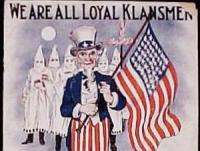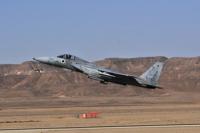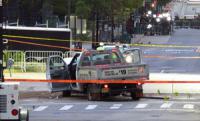-
The first lone-wolf terrorist
Muharem Kurbegovic is considered the first “lone-wolf” terrorist. He was born in Sarajevo in 1943 and immigrated to the United States in 1967 to pursue a career in engineering. In 1973 he launched a series of bombing in and around Los Angeles. What especially alarmed the authorities was his interest in building chemical weapons, including nerve-gas munitions, to use in his planned attacks:
-
-
Analyzing lone-actor terrorism in context
Assessing and managing the risk of lone-actor terrorism is a challenge, as events around the world continue to show. Noémie Bouhana of the Department of Security and Crime Science at University College London suggests a shift in focus from “who and why” to “who and where.” This approach is captured in the S5 framework, which builds on the findings of PRIME, an international project led by Bouhana and funded by the European Commission to understand and counter lone-actor terrorism.
-
-
UN calls for repatriation of IS wives, children in Syria
The U.N. Office for the Coordination of Humanitarian Affairs (OCHA) is calling on countries to repatriate thousands of wives and children of Islamic State militants in Syria, who are living in dire conditions in the al-Hol camp in al-Hasakeh governorate in northeast Syria.
-
-
Exposure to mass violence on the media leads to cycle of distress
The more people watch, listen or scroll through hours of news coverage of events such as terrorist attacks, the more likely they are to develop stress symptoms that in turn increase their media consumption during the next mass violence event, according to a nationwide study.
-
-
Social media networks aid, abet white supremacist terrorism: Study

A new study reveals how fringe social media sites such as Gab, 4 Chan and 8chan act like virtual “round-the-clock white supremacist rallies” where hateful notions of Jews and other minorities are openly espoused and closely associated with violence as a solution.
-
-
Israeli air strike destroys Iranian missile production, storage facility in Syria

Satellite images released Sunday by ImageSat International (ISI) showed the impact of an airstrike, blamed on Israel, on a missile base in Syria on Saturday evening that reportedly killed Iranian personnel. Israeli analysts say that recent Israeli air strikes in Syria probably would not have passed without public Russian comment had Israel and Russia not reached an understanding designed to reduce possible friction and improve early warning between Israeli and Russian armed forces operating in Syria.
-
-
U.K. citizens prohibited from traveling to, remaining in designated terrorist areas
British Home Secretary Sajid Javid said that British citizens who travel to overseas terrorism areas will face up to ten years in jail under new laws, which come into effect today. The legislation targets potential foreign fighters, and making it a punishable offense to enter or remain in a “designated area.”
-
-
German police raids Hamas-linked charities

The German police have staged raids across Germany, targeting charities which provide support to the Palestinian Hamas movement in the Gaza Strip. The United States, Israel, and the EU regard Hamas a terrorist organization.
-
-
Islamic State: the “caliphate” is off the map for now, but will evolve in dangerous ways
The so-called Islamic State (IS) recently lost its last remnant of territory in Syria, but observers were quick to remind the world that the war against the organization is far from over. IS is now expected to evolve, but with its defeat on the ground in Syria and Iraq, IS and its offshoots will have a more limited capacity for recruitment, indoctrination and growth.
-
-
Police foil possible terror truck attack outside Washington, D.C.

A Maryland man has been arrested for an Islamic State-inspired terror plot to run down pedestrians with a stolen truck. Federal prosecutors will argue in a court appearance Tuesday that 28-year-old Rondell Henry should remain in detention pending trial.
-
-
Foiled terrorist plot targeted Colombia's president
The Colombian government said that armed groups were plotting an attack against President Ivan Duque. The attorney general said the alleged scheme involved “a high-precision weapon.” The Colombian authorities are investigating the militant plan to target Duque during a scheduled meeting with indigenous communities on Tuesday.
-
-
Hate incidents are underreported. Now, there’s an app for that
Despite the FBI recording an all-time high in hate-motivated incidents in 2017 (the most recent year’s statistics available) the number is likely much higher. Low reporting from victims to police and inconsistent reporting from police to federal authorities have created a massive gap in how we understand hate in America. Researchers from the University of Utah want to fill that gap with an app.
-
-
U.S. designates Iran's Revolutionary Guards as “foreign terrorist organization”
The United States has designated Iran’s Revolutionary Guards Corps (IRGC) a foreign terrorist organization. The U.S. currently designates some sixty groups around the world as foreign terrorist organizations, but none of them is a state-run military like the IRGC.
-
-
Countering violent extremism (CVE): Which programs work, and why
As countries around the world develop countering violent extremism (CVE) programs to prevent homegrown terrorism, there is a dearth of understanding about what types of such programs exist and which approaches are most effective.
-
-
If we want students to feel safe at school, we can’t encourage teachers to spot potential extremists
Governments have been reaching into schools to try to nip violent extremism in the bud for some time. The Obama administration announced a Countering Violent Extremism (CVE) program in 2014. Programs like these have also been introduced without adequate evidence for their effectiveness. Delivering a program that hasn’t been properly evaluated could make the underlying issues worse. It could ultimately increase youth vulnerabilities (rather than resilience) to radicalization, and other antisocial behaviors.
-
More headlines
The long view
“The Federal Government Is Gone”: Under Trump, the Fight Against Extremist Violence Is Left Up to the States
As President Donald Trump guts the main federal office dedicated to preventing terrorism, states say they’re left to take the lead in spotlighting threats. Some state efforts are robust, others are fledgling, and yet other states are still formalizing strategies for addressing extremism. With the federal government largely retreating from focusing on extremist dangers, prevention advocates say the threat of violent extremism is likely to increase.
Luigi Mangione and the Making of a ‘Terrorist’
Discretion is crucial to the American tradition of criminal law, Jacob Ware and Ania Zolyniak write, noting that “lawmakers enact broader statutes to empower prosecutors to pursue justice while entrusting that they will stay within the confines of their authority and screen out the inevitable “absurd” cases that may arise.” Discretion is also vital to maintaining the legitimacy of the legal system. In the prosecution’s case against Luigi Mangione, they charge, “That discretion was abused.”
